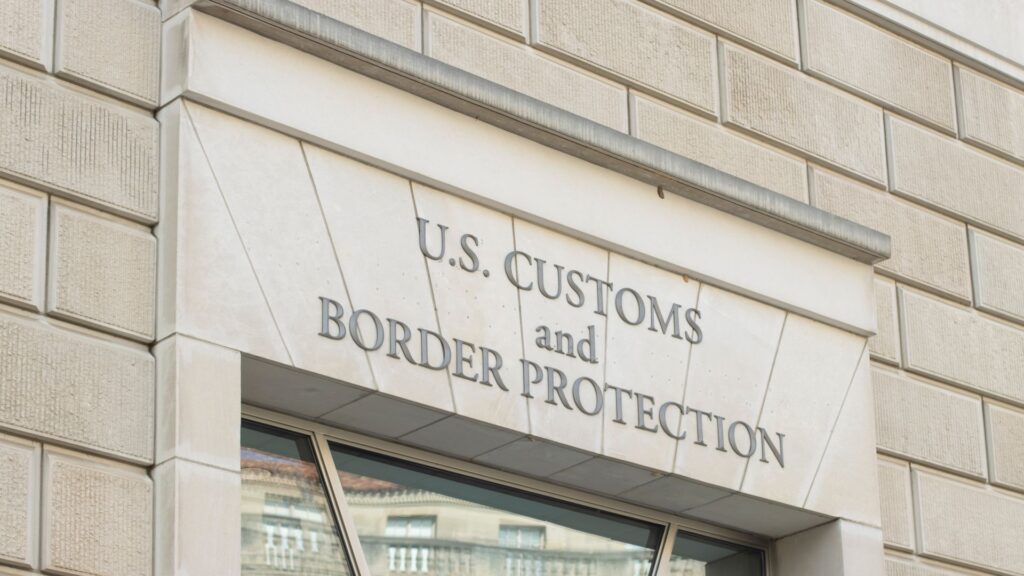Seko Logistics has fought back against U.S. Customs and Border Protection's suspension of certain import privileges, asking the agency in court filings to provide reasons for its enforcement action as Seko tries to minimize reputational damage that could hurt its business.
The Schaumburg, Illinois-based logistics company announced Monday night that it has filed a lawsuit in the Court of International Trade seeking to force CBP to identify the violations that led to its suspension from the Entry Type 86 program and the Customs-Trade Partnership Against Terrorism (C-TPAT) despite its conditional reinstatement.
Seko argued that CBP's actions were “draconian” because it had not yet been presented with evidence of compliance issues and had a strong track record of complying with regulations.
“We are extremely disappointed with CBP's original decision and strongly disagree with it.”
James Gagne, president and CEO of SEKO Logistics, said in a statement: “We maintain good working relationships with U.S. Customs and C-TPAT and will continue to serve as a valued compliance partner in the global supply chain and take all appropriate steps to protect our company, our customers and U.S. consumers.”
CBP has reportedly taken action against six customs brokers for failing to properly informally declare low-value imports that are granted duty-free, expedited access to the U.S. market. Large e-retailers, primarily from China, are taking advantage of the $800 minimum value threshold to ship directly to consumers rather than consolidating each package and sending it to a larger distributor. In addition to losing potential revenue from import taxes, the government is concerned that the limited information requirements are enabling unscrupulous operators to smuggle fentanyl, counterfeit goods, and other prohibited items in small packages.
Entry Type 86 is a voluntary program being offered on a pilot basis that allows customs brokers to accept importer responsibilities and submit package data electronically for e-commerce companies by providing a small amount of additional data in exchange for expedited clearance. Entry Type 86 provides the government with more data and transparency about e-commerce packages arriving in the United States than traditional manifest or postal entry for small shipments, which do not require submission of sender or contents data.
C-TPAT is a voluntary trade facilitation program under which U.S. companies that are certified as adhering to high security standards throughout their supply chains receive lower scores in CBP's risk rating system and are significantly less likely to have their shipping containers selected for non-intrusive scanning at ports of entry.
Seco Logistics was the only customs broker to be publicly identified after news outlet The Information reported that it had been barred from the expedited entry program for 90 days. CBP has not released the names of the suspects.
The company said in court filings that CBP has failed to provide any details about the violations, despite repeated requests and threats of legal action. Seko is also seeking an injunction removing all conditions to reinstatement into the program until the alleged violations that led to CBP's enforcement action are identified.
“SEKO remains committed to seeking their full and unconditional return to the country.
Based on a program whereby authorities take enforcement action without taking unprecedented steps
In a statement, the company said it would “identify specific violations,” and questioned whether any existed given the company's “greater than 999.999% compliance rate.”
Seko, one of the first freight forwarders to offer specialized logistics services to online retailers, said it was notified of the suspension by CBP in late May and given just seven days before the suspension took effect. The company said it was not given an opportunity to address the untested deficiencies CBP identified, which is not surprising given the company's extremely high compliance rate.
“SEKO has always strived to be compliant and work with CBP to address any issues.
“We continue to believe that this program is beneficial and aligns with CBP's policy of protecting Americans,” said Lila Landis, SEKO's global chief compliance officer.
“consumer”
For more FreightWaves/American Shipper articles by Eric Kulisch, click here.
Sign up for the weekly American Shipper Air newsletter here.
U.S. Customs steps up enforcement of low-value e-commerce transactions


